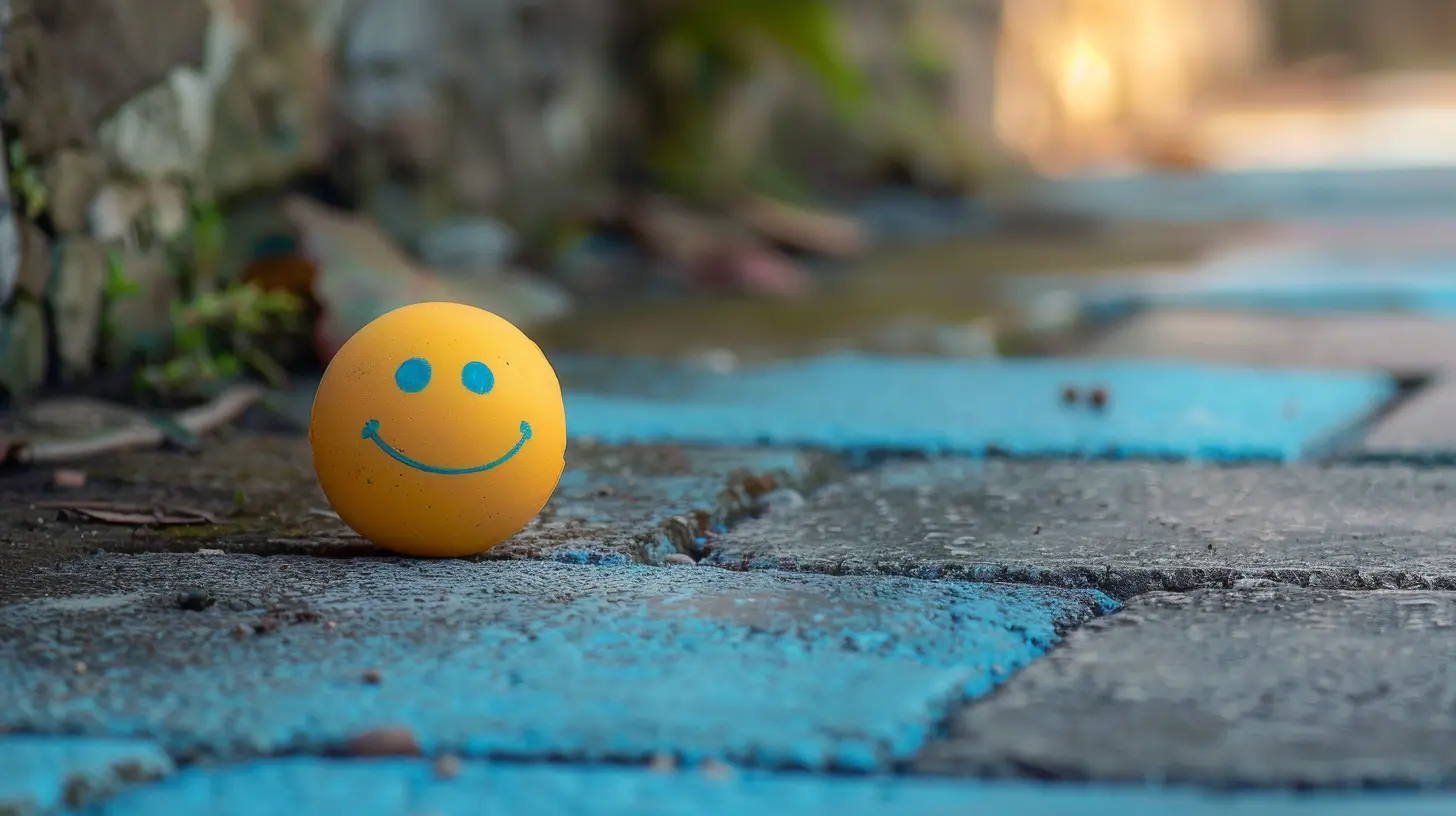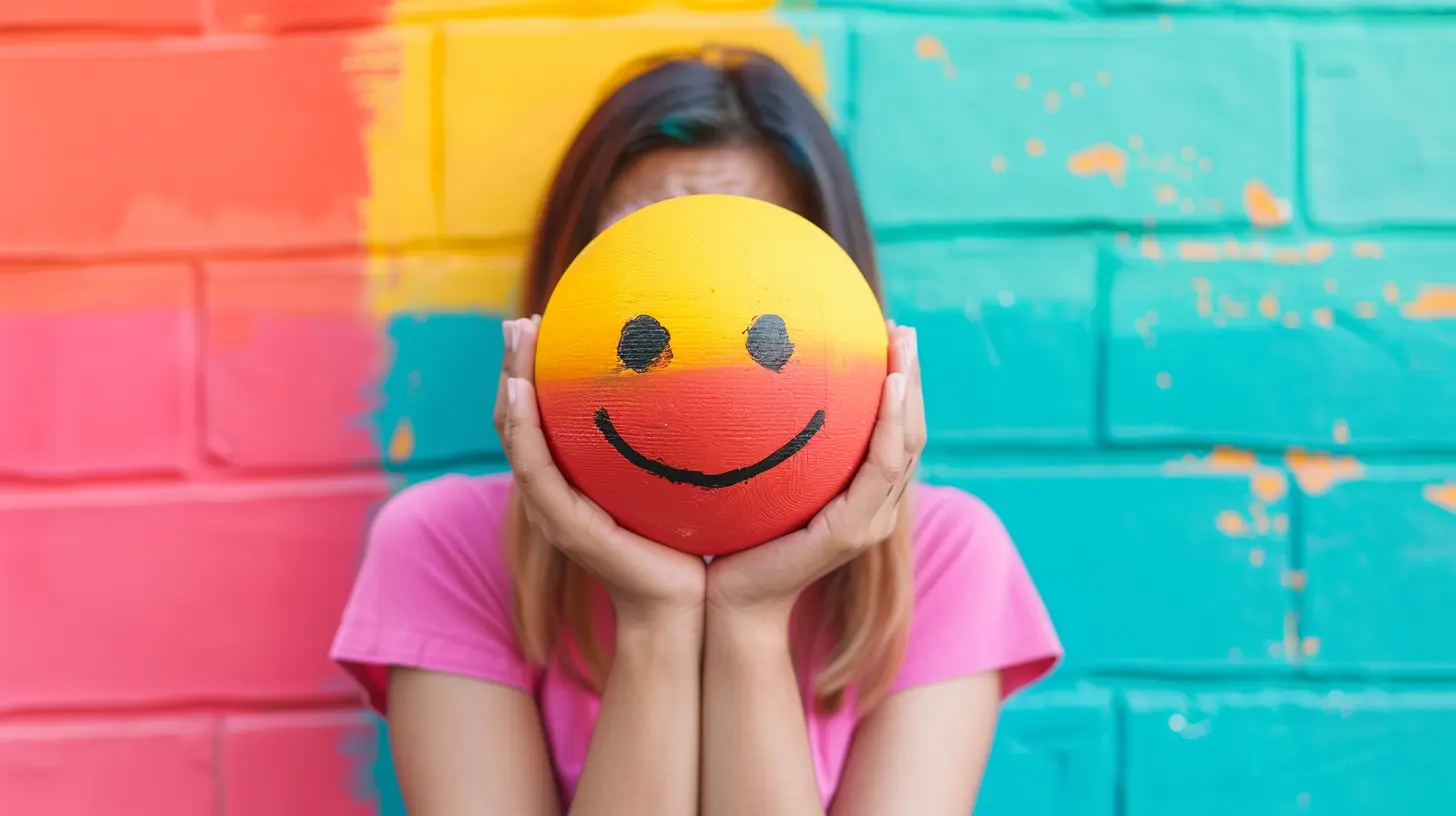How to Cultivate Patience Through Emotional Regulation
9 April 2025
Patience is one of those virtues that everybody wishes they had more of, but let’s be honest—it’s easier said than done. Whether you’re stuck in traffic, waiting for an important email, or dealing with a difficult coworker, learning how to be more patient can feel like trying to climb a mountain with a backpack full of rocks. But what if I told you that the secret to being more patient lies not in just waiting things out, but in managing your emotions? That’s where emotional regulation comes in, and it's a game-changer.
In this article, we’ll dive deep into how you can cultivate patience through emotional regulation. We’ll break down what emotional regulation is, why it matters, and how you can harness it to become more patient in your everyday life.

What Is Emotional Regulation?
Before we can talk about how emotional regulation helps us cultivate patience, we need to understand what emotional regulation is in the first place.Emotional regulation is essentially how we manage and respond to our emotions, especially in stressful or triggering situations. It’s not about suppressing your feelings or pretending like they don’t exist. Instead, it's about being aware of your emotions and making conscious choices about how to express and cope with them.
Think of it like being the driver of your emotional car. You can’t always control the traffic or the weather, but you can control how you react to it. You can decide whether to take a deep breath or honk your horn like a maniac.
Why Does Emotional Regulation Matter?
So why does emotional regulation matter when it comes to patience? Well, impatience often stems from emotional triggers like frustration, fear, or even boredom. When something doesn’t go our way, our first instinct can be to react impulsively—whether that means snapping at someone, giving up, or stressing out. But when we regulate our emotions, we’re able to recognize how we’re feeling and make a conscious choice not to let those emotions drive us into impulsive, impatient behaviors.In short, emotional regulation helps you put the brakes on those knee-jerk reactions, giving you the space to cultivate patience.

The Link Between Emotional Regulation and Patience
Now that we know what emotional regulation is, let’s explore how it relates to patience specifically. Patience is not just the ability to wait—it’s the ability to wait without getting upset, stressed, or frustrated. And guess what? That’s all about managing your emotions.Let’s say you’re waiting in line at the grocery store, and it’s moving at a snail’s pace. Your initial reaction might be to grumble, check your phone, or sigh dramatically. But if you’re practicing emotional regulation, you’d pause, recognize that you’re feeling frustrated, and make a conscious choice to handle that emotion differently. Maybe you take a few deep breaths or remind yourself that it’s not the end of the world. The result? You’re able to wait without losing your cool.
Emotional Triggers That Erode Patience
Here are some common emotional triggers that can erode our patience, along with how emotional regulation can help:- Frustration: When things don’t go our way, it’s easy to get frustrated. Emotional regulation helps you understand your frustration and choose a healthier way to respond.
- Anxiety: Fear of the unknown or uncertainty can make waiting unbearable. Emotional regulation allows you to acknowledge your anxiety and tackle it with coping strategies like mindfulness or deep breathing.
- Anger: Anger can flare up when things don’t meet our expectations. With emotional regulation, you can recognize your anger and channel it into something more constructive.

Practical Steps to Cultivate Patience Through Emotional Regulation
Okay, so we’ve covered the theory. Now let’s talk about how you can actually start cultivating patience through emotional regulation in your day-to-day life. Here are some practical steps you can take:1. Practice Mindfulness
Mindfulness is one of the best tools for emotional regulation. It’s all about being present in the moment and paying attention to your thoughts and feelings without judgment. When you're mindful, you become more aware of your emotional reactions, which makes it easier to regulate them.Next time you feel impatience creeping in, stop and take a moment to check in with yourself. What are you feeling? Where are those feelings coming from? Simply acknowledging your emotions can help you manage them more effectively.
2. Use Deep Breathing Techniques
When you're feeling impatient, your body tends to tense up, and your heart rate may increase. Deep breathing can help calm your nervous system and give you a moment to pause before reacting.Try this: when you feel impatience bubbling up, take a deep breath in for a count of four, hold it for four seconds, and then exhale for four seconds. Repeat this a few times until you feel more grounded. This simple act can help you create the emotional space needed to practice patience.
3. Reframe the Situation
Often, impatience comes from the stories we tell ourselves. For example, if you’re stuck in traffic, you might start thinking, “This always happens to me!” or “Why is this taking so long?” These thoughts only fuel your impatience.Instead, try to reframe the situation. Maybe being stuck in traffic is an opportunity to listen to your favorite podcast, or perhaps it’s a chance to practice gratitude for having a car in the first place. The way you think about a situation can dramatically impact your emotional response to it.
4. Develop Emotional Awareness
One of the first steps in emotional regulation is simply being aware of your emotions in the moment. If you can’t identify what you’re feeling, it’s much harder to regulate those emotions.Start by checking in with yourself throughout the day. Ask yourself: How am I feeling right now? What triggered this emotion? Is this emotion serving me, or is it getting in the way of my patience? This practice helps you become more attuned to your emotions and gives you a better chance of regulating them effectively.
5. Set Realistic Expectations
A lot of impatience comes from expecting things to go perfectly or happen immediately. When reality doesn’t match up with those expectations, we get frustrated or anxious. But if you set more realistic expectations for yourself and others, you’re less likely to feel impatient.For example, if you know that traffic is likely to be bad during rush hour, set the expectation that your commute might take a bit longer rather than expecting it to be smooth sailing. When things don’t go as planned, you’ll be less likely to react emotionally.
6. Practice Self-Compassion
Being patient with yourself is just as important as being patient with others. When you make a mistake or things don’t go your way, it’s easy to get down on yourself, which only leads to more stress and impatience.Instead, practice self-compassion. Acknowledge that you’re doing your best and that it’s okay to have setbacks. When you’re kind to yourself, it’s easier to regulate your emotions and cultivate patience.
7. Engage in Regular Physical Activity
This might be surprising, but physical activity is a great way to improve emotional regulation. Exercise releases endorphins, which are natural mood boosters, and it helps reduce stress and anxiety—two big culprits behind impatience.Try incorporating regular physical activity into your routine, whether it’s going for a walk, hitting the gym, or practicing yoga. Not only will it help you manage your emotions, but it will also give you a healthy outlet for any pent-up frustration or impatience.

The Long-Term Benefits of Cultivating Patience
Now that you’ve got some strategies under your belt, let’s talk about the long-term benefits of cultivating patience through emotional regulation. Spoiler alert: It’s not just about feeling calmer in the moment.1. Better Relationships
When you’re more patient, you’re less likely to snap at others or let small annoyances ruin your interactions. This leads to healthier, more meaningful relationships with the people around you.2. Improved Mental Health
Constantly feeling impatient and stressed can take a toll on your mental health. By regulating your emotions and cultivating patience, you’ll experience less stress, anxiety, and frustration in your daily life.3. Increased Productivity
Believe it or not, patience can actually make you more productive. When you’re not reacting impulsively or getting frustrated by setbacks, you’re better able to focus on the task at hand and see things through to completion.4. Enhanced Decision-Making
Patience allows you to think more clearly and make better decisions. When you’re not emotionally reactive, you can approach problems with a calm, rational mindset, which leads to better outcomes.Conclusion
Patience isn’t something you’re either born with or not—it’s a skill, and like all skills, it can be developed. By practicing emotional regulation, you can start to cultivate more patience in your daily life. Whether it’s through mindfulness, deep breathing, or simply reframing your thoughts, these strategies will help you manage your emotions more effectively and, in turn, become a more patient person.So the next time you’re stuck in traffic or waiting for something that seems like it’s taking forever, take a deep breath, check in with your emotions, and remember: patience is a practice, not a destination.
all images in this post were generated using AI tools
Category:
Emotional RegulationAuthor:

Jenna Richardson
Discussion
rate this article
4 comments
Vaughn Jennings
Fascinating approach! Excited to explore how emotional regulation truly fosters patience.
May 17, 2025 at 4:15 AM

Jenna Richardson
Thank you! I'm glad you found it intriguing—emotional regulation really is key to building lasting patience. Enjoy your exploration!
Farrah Pratt
Cultivating patience through emotional regulation is a transformative journey! Embrace each step as an opportunity for growth. Remember, every moment spent mastering your emotions brings you closer to serenity and strength. Keep going—your patience will blossom into profound resilience!
May 4, 2025 at 3:43 AM

Jenna Richardson
Thank you for your insightful comment! Embracing each step truly fosters growth and resilience on this journey.
Courtney McAdams
Cultivating patience through emotional regulation not only enhances personal well-being but also enriches relationships. By fostering self-awareness and practicing mindfulness, we can transform impulsive reactions into thoughtful responses, promoting a more resilient mindset.
April 16, 2025 at 4:45 PM

Jenna Richardson
Thank you for your insightful comment! I completely agree—self-awareness and mindfulness are crucial in transforming our reactions and enriching both our well-being and relationships.
Atlas Pruitt
This article offers valuable insights into cultivating patience by enhancing emotional regulation. It emphasizes practical techniques such as mindfulness, self-awareness, and breathing exercises, which help manage impulsive reactions. Implementing these strategies can lead to improved emotional stability and longer-term patience.
April 15, 2025 at 2:30 PM

Jenna Richardson
Thank you for your thoughtful comment! I’m glad you found the insights on mindfulness and emotional regulation valuable for cultivating patience. Your feedback is much appreciated!



